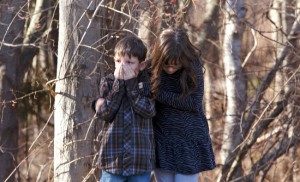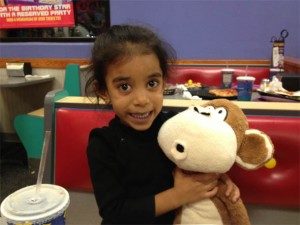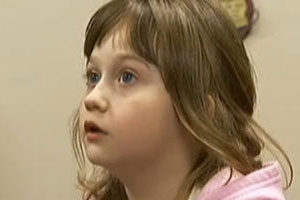Parents; How to Talk to Children about the Connecticut School Shooting
 We have all heard the horrific news by now. At 9:40 this morning, a masked gunman named Adam Lanza entered Sandy Hook elementary school and fired a gun around 100 times. He killed 26 people, 6 adults and 20 children under the age of 8 before killing himself.
We have all heard the horrific news by now. At 9:40 this morning, a masked gunman named Adam Lanza entered Sandy Hook elementary school and fired a gun around 100 times. He killed 26 people, 6 adults and 20 children under the age of 8 before killing himself.
Since then it’s been hard to concentrate on anything else but this story. As a parent of young children, it’s the unimaginable. You send your children off to school hoping that they will be happy but knowing that they will be safe. Typical worries of a friend not being so friendly or a teacher giving a bad grade may cross our minds. But not this.
There is no making sense of this tragedy but we do need to be ready for questions. What do we do for and say to our children about this senseless shooting?
(1) Limit media exposure: Conversation and information about this tragedy should come from you, not the TV. You know your children best and can limit details as necessary. Information on the news is for you and is not age-appropriate for a child.
(2) Underscore safety: Ensure your children that the authorities and people in charge at their schools are doing everything possible to keep everyone safe. Help them to understand that a school shooting in one location does not mean that there will be another one in a different location. These incidents are thankfully very rare and your children and their friends are not at risk because this has happened. In this case, as the gunman is also dead, there is a finality to this devastating rampage.
(3) Remain calm and levelheaded: While it is natural to be upset and infuriated about the shooting, it’s important that we don’t overwhelm children with our emotions. They need to know that we are strong and reliable if they have questions—and that we are there for them if they need to talk. If YOU need to talk about it, call a friend or speak to a loved one.
(4) Expect some unusual behavior or feelings: Sometimes news of this sort can make the children act in different ways. Some will become withdrawn and quiet while others may become hyper or clingy. Ask them how they are feeling and if they would like to talk. Assure your child that they are OK and give them space to feel anyway that they do—validating their feelings as normal and natural. Help them to expend nervous energy in productive ways without pushing them.
(5) Discuss fears: Whether you sit with them and have a conversation or use art, role playing or dolls, allow children to express their fears. What will help them feel safer and more secure? Fears are nothing to be embarrassed about– today or any day. Sometimes just listening and being their can assuage their fears.
(6) Do not dismiss or avoid: It’s a tough topic. But if your children are asking about it, talk to them in an age-appropriate way. You don’t need to go into details and if you don’t know an answer, just say you don’t know! Assure them each time that they are OK and the people in charge are working hard to keep everyone safe. Remember, if you aren’t talking about it and they want to hear an answer, they will go to another source. YOU need to be the source.
(7) Hug them tight: Nothing says safety and security like being tucked into your parents’ arms. Tell them that you love them and that you and everyone who loves and cares for them are doing everything you can to ensure their safety.
The hug, of course, is also for you. At times, having children can feel like a really big, tough and even frustrating job. Everyone has their moments. But today, take time to hold your children and tell them how grateful you are to have them. That your life is enriched by them. That they fill your heart with the most delicious happiness and you thank goodness everyday that they are yours.
Do it. Again and again. You’ll be glad you did.


 I can’t believe I’m saying this…Parents are forgetting their kids at the children’s play place, Chuck E. Cheese’s. While this may sounds like the makings of a Saturday Night Live skit to you, it’s actually the truth. Yesterday, Good Morning America called me to do a piece (which was squashed at the final hour) about a 5 year old girl who was left at Chuck E. Cheese’s last week.
I can’t believe I’m saying this…Parents are forgetting their kids at the children’s play place, Chuck E. Cheese’s. While this may sounds like the makings of a Saturday Night Live skit to you, it’s actually the truth. Yesterday, Good Morning America called me to do a piece (which was squashed at the final hour) about a 5 year old girl who was left at Chuck E. Cheese’s last week. But, believe it or not, this has happened before to other parents. In fact, it just happened last Monday to another family!
But, believe it or not, this has happened before to other parents. In fact, it just happened last Monday to another family! 
 My
My